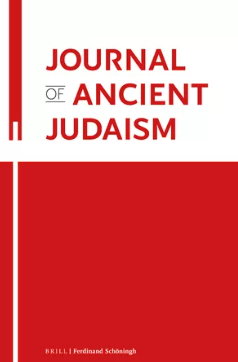https://doi.org/10.30965/21967954-BJA10003
1세기에는 그리스어권 저자들이 ‘피스티스’(πιˊστις, 여기서는 충실성, 신뢰, 확신, 증거의 의미)를 논하는 빈도가 상당히 증가한다. 피스티스를 가장 많이 사용하는 저자는 필론, 바울, 요세푸스 등인데, 이는 당대 많은 사람이 충실성에 대해 사유했지만, 특히 유대 민족이 이 주제에 더 깊이 몰두했음을 시사한다.본 논문은 이들 중 필론과 요세푸스라는 두 저자에게 초점을 맞춘다. 본고는 두 유대인 저자 모두 충실성이 족장 시대부터 당대에 이르기까지 유대 민족의 기초적인 국가적-민족적 특성이라고 주장했음을 논증한다.더 나아가, 본 논문은 유대인의 지속적인 충실성이라는 이러한 이미지가 피데스(fides), 즉 충실성에 마찬가지로 집착했던 원수정(principate) 로마라는 식민 권력의 지배하에 살았던 맥락 속에서 더 잘 이해될 수 있다고 주장한다
The first century sees a substantial rise in the frequency with which Greek speaking authors discuss pistis (here, understood as fidelity, trust, confidence, proof). The authors who use pistis the most include Philo, Paul, and Josephus. This suggests that while many people are thinking about fidelity, ethnic Judeans are thinking about it disproportionately. This essay focuses on two such authors, Philo and Josephus. I argue that both Judeans claim fidelity to be a foundational national-ethnic characteristic, from the patriarchs to their own day. Furthermore, the article argues that this image of enduring Judean fidelity can be better understood within the context of living under the colonizing power of Rome – a principate that is equally preoccupied with fidelity (fides).







